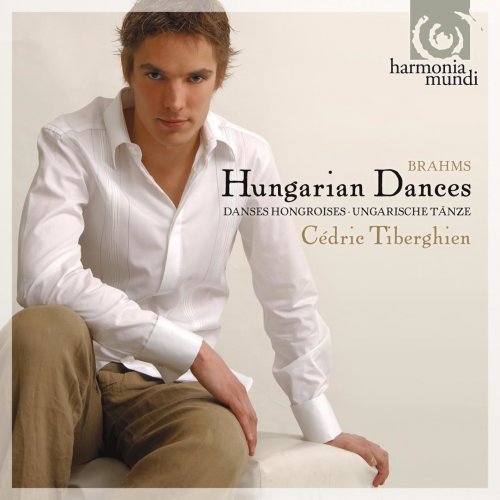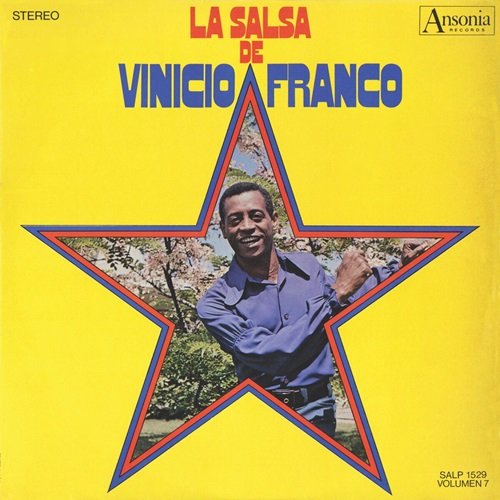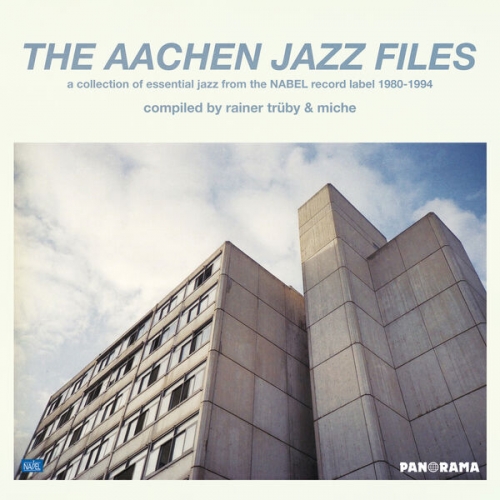Cédric Tiberghien - Brahms: Hungarian Dances (2008) [Hi-Res]

Artist: Cédric Tiberghien
Title: Brahms: Hungarian Dances
Year Of Release: 2008
Label: harmonia mundi
Genre: Classical Piano
Quality: flac 24bits - 44.1kHz
Total Time: 01:11:11
Total Size: 542 mb
WebSite: Album Preview
TracklistTitle: Brahms: Hungarian Dances
Year Of Release: 2008
Label: harmonia mundi
Genre: Classical Piano
Quality: flac 24bits - 44.1kHz
Total Time: 01:11:11
Total Size: 542 mb
WebSite: Album Preview
01. Hungarian Dances WoO 1: I. Allegro
02. Hungarian Dances WoO 1: II. Allegro Non Assai
03. Hungarian Dances WoO 1: III. Allegretto
04. Hungarian Dances WoO 1: IV. Poco Sostenuto
05. Hungarian Dances WoO 1: V. Allegro
06. Hungarian Dances WoO 1: VI. Vivace
07. Hungarian Dances WoO 1: VII. Allegretto Vivace
08. Hungarian Dances WoO 1: VIII. Presto
09. Hungarian Dances WoO 1: IX. Allegro
10. Hungarian Dances WoO 1: X. Presto
11. Klavierstücke Op.76: I. Capriccio. un Poco Agitato
12. Klavierstücke Op.76: II. Capriccio. Allegretto Non Troppo
13. Klavierstücke Op.76: III. Intermezzo. Grazioso
14. Klavierstücke Op.76: IV. Intermezzo. Allegretto Grazioso
15. Klavierstücke Op.76: V. Capriccio. Agitato, Ma Non Sempre Presto
16. Klavierstücke Op.76: VI. Intermezzo. Andante Con Moto
17. Klavierstücke Op.76: VII. Intermezzo. Moderato Semplice
18. Klavierstücke Op.76: VIII. Capriccio. Grazioso Ed un Poco Vivace
19. Walzer Op.39: I. Tempo Giusto
20. Walzer Op.39: II.
21. Walzer Op.39: III.
22. Walzer Op.39: IV. Poco Sostenuto
23. Walzer Op.39: V. Grazioso
24. Walzer Op.39: VI. Vivace
25. Walzer Op.39: VII. Poco Più Andante
26. Walzer Op.39: VIII.
27. Walzer Op.39: IX.
28. Walzer Op.39: X.
29. Walzer Op.39: XI.
30. Walzer Op.39: XII.
31. Walzer Op.39: XIII.
32. Walzer Op.39: XIV.
33. Walzer Op.39: XV.
34. Walzer Op.39: XVI.
This is really distinguished playing, and the programme is cunningly designed. Cédric Tiberghien throws himself into the first book of Hungarian Dances with apparent abandon: his rhythmic verve and skill at characterising each piece, indeed every theme, are hugely enjoyable, and yet each movement is in fact very sensitively thought-through in terms of touch, pedalling and phrasing.
At the other end of the disc he gives the Op. 39 Waltzes a ballroom sweep and elegance they rarely receive, and intimacy in the gentler numbers.
But these two dance-sets bookend the perennially elusive, aristocratic Eight Pieces Op. 76, and help to reveal how these, too, are essentially dances. Not only the faster and more emphatically rhythmic Capriccios but also the Intermezzos, though these move to a vastly more complex measure, Brahms conjuring the ghosts of Schumann and Chopin.
Tiberghien’s consummate use of rubato, his scrupulous shading of dynamics and exquisite control of tone-colour make for a memorable account of these not always easily graspable pieces. I admired Libor Novacek’s recent account of Op. 76 on Landor, but Tiberghien’s is a yet more eloquent and poetic reading, on a par with those of Katchen, Steven Kovacevich and Dmitri Alexeev, and in more natural sound than any of them. (Calum MacDonald)
“Cédric Tiberghien throws himself into the first book of Hungarian Dances with apparent abandon: his rhythmic verve and skill at characterising each piece, indeed every theme, are hugely enjoyable… At the other end of the disc he gives the Op. 39 Waltzes a ballroom sweep and elegance they rarely receive, and intimacy in the gentler numbers. But these two dance-sets bookend the perennially elusive, aristocratic Eight Pieces Op. 76 ... Tiberghien's consummate use of rubato, his scrupulous shading of dynamics and exquisite control of tone-colour make for a memorable account of these not always easily graspable pieces.” (BBC Music Magazine)
“Tiberghien's weighty sensitivity and deep range of colour prove telling. The Hungarian Dances balance bravura with a dark refinement of mood and cover a much wider emotional spectrum than we usually imagine they possess. The Waltzes, infinitely graceful, are tinged with hints of quiet regret. Very beautiful and highly recommended.” (The Guardian, October)
![Ex Novo Ensemble - Claudio Ambrosini: Chamber Music (2020) [Hi-Res] Ex Novo Ensemble - Claudio Ambrosini: Chamber Music (2020) [Hi-Res]](https://img.israbox.com/img/2026-02/22/z541qb9ul4q390uxlw1d9iak3.jpg)






![Alcides Neto - Amú (2026) [Hi-Res] Alcides Neto - Amú (2026) [Hi-Res]](https://img.israbox.com/img/2026-02/26/mtckmw6jmvula60sukh6h3h26.jpg)
![Double Drums, Philipp Jungk & Alexander Glöggler - All You Can Beat (2026) [Hi-Res] Double Drums, Philipp Jungk & Alexander Glöggler - All You Can Beat (2026) [Hi-Res]](https://www.dibpic.com/uploads/posts/2026-02/1771946421_folder.jpg)